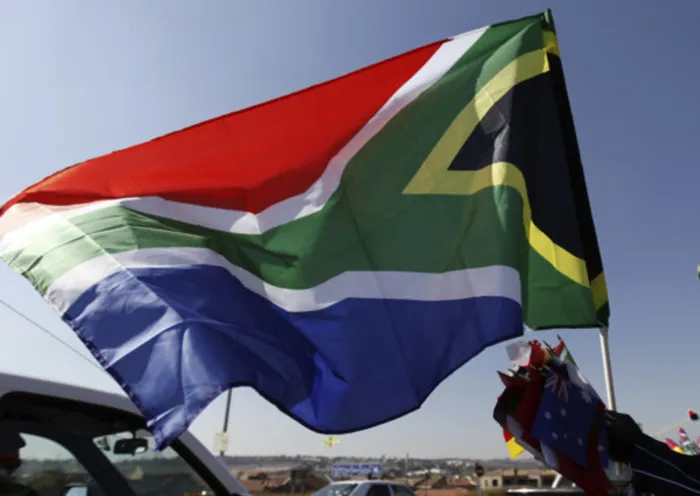Taking stock of 18 years of freedom

Stock photo. Stock photo.
Tomorrow marks Freedom Day. In the universal context, the meaning of freedom is as crystal clear as it is unambiguous.
It means to be free from anyone’s bondage, in any form or shape.
We have been free since April 27, 1994 when, for the first time in our history, Africans – the majority citizens – were allowed to vote in the land of their forebears.
Freedom Day, therefore, is a sharp reminder of the bygone era when we blacks were oppressed.
What does the day mean to white South Africans?
I believe Freedom Day ought to mean being freed from the National Party’s warped logic and self-delusionary belief that one’s skin colour was a determinant of one’s superiority over those of a different race.
As we celebrate 18 years of freedom together, as fellow citizens and countrymen and women interwoven by a common desire to live side-by-side in peace and harmony, and to prosper together without disadvantaging each other, how much progress have we made in our Nelson Mandela-led journey?
Can we, as South Africans, irrespective of our race, culture, creed and gender say – in unison – that we have built a just and fair dispensation where we have eliminated fear of one another and created equal opportunities for all to pursue without any hindrance, real or perceived?
Since April 1994, when we participated in those first democratic elections which ushered in Mandela as the first democratically-elected black president and his party – the ANC – as the legitimate representative of the majority and their aspirations, how far have we gone in a material sense to realise that dream of equality?
Tomorrow provides us with another annual interval to pause and take stock of the distance travelled as we walk away from our heinous past.
Every April 27 compels the entire country to look in the mirror and reflect on the achievements, or lack thereof, of the dream of Mandela and other founding fathers and mothers of our nation.
Many, including Elias Motsoaledi, Harry Gwala, Walter and Albertina Sisulu, Govan Mbeki and Bertha Gxowa, have died.
The great Mandela and others are still living. What is their assessment of the pace and direction of the reformation of SA?
What about the other heroes and heroines of our noble Struggle who were killed in the battle to end apartheid and emancipate us from the yoke of oppression?
Wherever they are, what do they make of our present-day rulers in the ANC?
Steve Biko, Robert Sobukwe, Chris Hani, Chief Albert Luthuli, as well as many of our Struggle ancestors – what do they make of the brutal killing of Andries Tatane by a bunch of moronic trigger-happy police who, thankfully, are facing criminal charges in the courts?
Granted, for many white South Africans the dawn of freedom means they, for their part, have been freed from the constant wrath of the international community, which had declared apartheid a crime against humanity.
White children who were born after the unbanning of political organisations in 1990 have grown up without being fed the staple lie that their pigmentation is a licence to suppress fellow citizens.
In Ficksburg, Tatane’s home town in the Free State, where residents go for months without water, what does freedom mean?
To the dispossessed masses, who have kept their patience with the government’s failed (by its admission) land reform programme, what colour is the fruit of freedom?
I bet none can tell, for they know not the fruits of freedom.
Years after the end of institutionalised discrimination, farm schools are still a source of child labour in some parts of the country.
Communities are sporadically up in arms over the lack or non-existence of services, as witnessed in Ficksburg, in my view a microcosm of a simmering and growing socio-economic malady.
The unemployment rate among historically disadvantaged communities runs sky-high.
Evidence abounds that in the new SA the rich are growing richer, and the poor poorer. The state of education leaves much to be desired while millions go to bed hungry.
The youth, by and large, are sitting at home twiddling their fingers despite many possessing tertiary qualifications.
According to statistics, a woman is raped every minute. Our streets and homes are unsafe. In Gauteng, every so often traffic police ask for bribes.
At some Home Affairs Department offices, some officials let people stand in queues for much longer, pretending to be busy on their computers while in actual fact they are playing games.
Is this the freedom for which so many of our compatriots gave their lives?
Granted, apartheid-era laws have been repealed. We enjoy the freedoms of movement, choice and speech.
No child can be barred from attending school on the basis of parents’ financial inability to pay fees in public schools. We’ve developed more into a form of social democracy, with millions dependent on the government’s monthly grants for survival. There is evidently plenty of good that the government has done in our new order.
But, having been returned to power with a convincing majority thrice since the first elections, can the ruling party claim with absolute honesty that everything is hunky-dory? Methinks not.
And here’s why: as another Freedom Day dawns, some will be going out to celebrate, as usual, while others will – once again – stay at home to mind their business. Such are the anomalies of the new SA, the disordered faults of our progress.
As long as all our people still can’t reach the fruits of freedom, the taste of which remains the knowledge of a few, such status quo could be an undetected ticking time bomb waiting to wreck the future envisaged at the beginning of our journey. Be warned.
*Makoe is the founder and editor-in-chief of the Royal News Services. His previous columns can be found at www.frankthought.co.za.